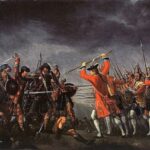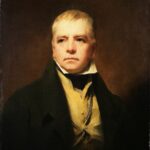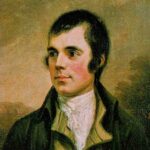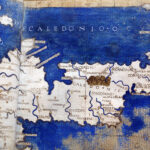The Explorers of Scotland: Pioneers of the Unknown and the Legacy of Discovery
Scottish history is defined not only by battles fought on home soil but also by the journeys and discoveries of its explorers in the farthest corners of the globe. The Scots have long been driven by a spirit of adventure, a hunger for knowledge, and an urge to leave their mark on the world. From the frozen Arctic to the jungles of Africa, from the uncharted rivers of North America to the sun-scorched deserts of Australia, Scottish explorers have played an outsized role in the mapping and understanding of the modern world. Their accomplishments reshaped global trade, science, and politics, while their setbacks and failures served as hard-won lessons that influenced future generations of explorers.
The rise of Scottish exploration was not an isolated phenomenon—it was born out of Scotland’s unique position as a maritime nation on the northern edge of Europe, where the harsh landscape bred resilience and adaptability. Historian Michael Lynch notes that “Scotland’s explorers were shaped by the very land they left behind—a landscape of rugged highlands, unpredictable seas, and harsh winters that instilled a spirit of endurance and adaptability” (Lynch, 1991). Whether driven by imperial ambition, scientific curiosity, or personal glory, Scottish explorers left an indelible mark on the world map and on the global imagination.
The Early Navigators and Merchants (15th–17th Century): Scotland’s First Global Reach
The earliest Scottish explorers emerged during the Age of Exploration, when European maritime powers such as Spain and Portugal were carving out trade routes and colonies in the Americas and Asia. While Scotland lacked the naval power of its southern neighbor, England, Scottish merchants and adventurers sought opportunities in the expanding global economy.
Henry Sinclair, Earl of Orkney (c. 1345–1400): The Alleged Pre-Columbian Voyager
One of the most controversial figures in early Scottish exploration is Henry Sinclair, the Earl of Orkney, who is alleged to have sailed to North America nearly a century before Christopher Columbus. The legend of Sinclair’s voyage to the New World is based on the 16th-century Italian text Zeno Narrative, which describes a voyage from the Orkney Islands to an unknown western land called “Estotiland.”
While the historical evidence remains inconclusive, some historians argue that Sinclair’s alleged voyage reflects Scotland’s early maritime culture and the adventurous spirit of the Orkney islanders. As historian Andrew Sinclair notes, “Whether or not Sinclair reached America, the fact that such a legend persists speaks to the depth of Scotland’s maritime tradition” (Sinclair, 1998).
William Paterson (1658–1719): The Darien Disaster
Scotland’s most ambitious early attempt at overseas exploration and colonization came with the Darien Scheme (1698–1700), led by Scottish financier and adventurer William Paterson. Paterson envisioned the creation of a Scottish trading colony at Darien (modern-day Panama) that would serve as a commercial hub between the Atlantic and Pacific Oceans.
Despite raising a significant portion of Scotland’s national wealth to fund the expedition, the Darien Scheme ended in disaster. Poor planning, disease, and hostility from the Spanish resulted in the loss of over 2,000 Scottish settlers. The collapse of the Darien colony bankrupted Scotland and weakened its political and economic position. Historians such as T.C. Smout have argued that the failure of the Darien Scheme “paved the way for the 1707 Act of Union with England” (Smout, 1969).
Paterson’s vision of Scotland as a global trading power was shattered, but the Darien Scheme underscored Scotland’s growing engagement with the wider world—a pattern that would continue through the imperial expansion of the 18th and 19th centuries.
The Age of Empire and Scientific Exploration (18th–19th Century)
Scotland’s entry into the British Empire following the Act of Union in 1707 opened new avenues for exploration and scientific discovery. Scottish explorers became central figures in the mapping of the British Empire, leading expeditions into Africa, Asia, the Americas, and the Arctic.
James Bruce (1730–1794): The Nile Explorer
One of the most accomplished Scottish explorers of the 18th century was James Bruce, who set out to discover the source of the Nile River. Bruce’s expedition took him deep into Ethiopia, where he became the first European to trace the source of the Blue Nile to Lake Tana in 1770.
Bruce’s return to Britain was met with skepticism, as many contemporaries doubted the authenticity of his findings. However, modern historians have confirmed Bruce’s account, recognizing him as one of the pioneers of African exploration. Historian Michael Fry notes that “Bruce’s achievement in tracing the Blue Nile was one of the great accomplishments of 18th-century exploration—a feat of endurance and scientific observation” (Fry, 1991).
Mungo Park (1771–1806): The Niger River Expedition
Mungo Park was one of the most tragic and heroic figures in Scottish exploration. Born in Selkirkshire, Park became fascinated with the African interior. In 1795, he embarked on an expedition to trace the course of the Niger River—a goal that had eluded European explorers for centuries.
Park’s first journey ended in success when he confirmed that the Niger flowed eastward, but his second expedition in 1805 ended in disaster. Park and most of his party were killed in an ambush while navigating the river. Park’s journals, published posthumously, became a seminal work in African exploration and inspired future expeditions. Historian Tim Jeal observes that “Park’s death was a tragic end to one of the most remarkable journeys in the history of exploration—a journey that opened West Africa to the European imagination” (Jeal, 2001).
Alexander Mackenzie (1764–1820): The First Crossing of North America
Mackenzie, born in Stornoway on the Isle of Lewis, was the first European to cross North America from east to west. In 1789, Mackenzie traced the Mackenzie River to the Arctic Ocean, and in 1793, he led an overland expedition to the Pacific Coast—beating the more famous Lewis and Clark Expedition by over a decade.
Mackenzie’s journeys paved the way for British control over the Canadian interior and opened the fur trade to global markets. Historian Peter C. Newman notes that “Mackenzie’s expedition was one of the defining moments in the territorial expansion of the British Empire—a triumph of endurance and strategic vision” (Newman, 1988).
The 20th Century: Polar Exploration and Modern Frontiers
The 20th century saw Scottish explorers shift their focus to polar exploration and scientific research.
John Rae (1813–1893): The Arctic Explorer
Rae, an Orcadian, was one of the most successful Arctic explorers of the 19th century. He discovered the final link in the Northwest Passage and accurately reported the fate of the lost Franklin Expedition. However, Rae’s discovery that Franklin’s crew had resorted to cannibalism earned him the hostility of the British establishment, and his achievements were overlooked for decades.
Modern historians have since recognized Rae’s contribution to Arctic exploration. Historian Ken McGoogan writes that “John Rae was the unsung hero of Arctic exploration—a man whose skill and knowledge of indigenous survival techniques set him apart from his contemporaries” (McGoogan, 2006).
Legacy and Conclusion
Scottish explorers shaped the modern world—not only through their discoveries and maps but also through their contributions to science, trade, and geopolitics. Figures like Bruce, Park, and Mackenzie expanded the boundaries of human knowledge, while the tragic failures of ventures like the Darien Scheme served as cautionary tales of ambition and hubris.
As Michael Lynch observes, “Scotland’s explorers were not only adventurers—they were agents of empire, science, and commerce whose legacy endures in the modern political and economic structures of the world” (Lynch, 1991). The Scottish spirit of exploration—driven by resilience, curiosity, and ambition—remains a defining element of the nation’s identity.
References
- Lynch, Michael. (1991). Scotland: A New History. Pimlico.
- Fry, Michael. (1991). The Scottish Empire. Birlinn.
- Jeal, Tim. (2001). Mungo Park: Explorer of the Niger. HarperCollins.
- McGoogan, Ken. (2006). Fatal Passage: The Story of John Rae. HarperCollins.
- Newman, Peter C. (1988). Empire of the Bay. Penguin.





